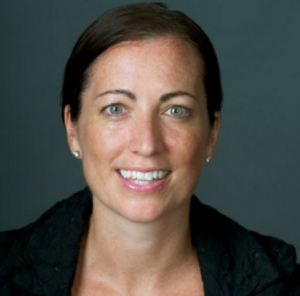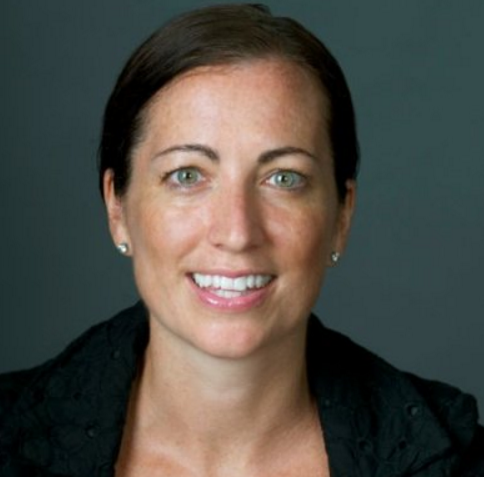A SOCAP Guest Post by Annie Rhodes, Director of Foundation Strategy at MicroEdge
Impact investing means a lot of different things to a lot of different people. Being a part of SOCAP16 enabled me to understand more about why this is and to learn about social investment from the organizations and people that are living it every day.
Most importantly for citizens of this world, we now know we have a community of partners interested in investing in our communities for the better. With that comes a new responsibility and accountability to help these vested partners understand what our communities need, how these needs can be met considering contextual aspects, and then empowering our community members be the change we need to flourish.
Partner
On a daily basis I have the opportunity to work with funders of all shapes and sizes. What I’ve learned from them is that communicating and collaborating with their stakeholders often leads to strengthened impact. From experience, I know that success is achieved when governments work with nonprofits, corporations, social entrepreneurs, funders and other industries to push the field forward.
I noticed a similar theme emerge at SOCAP16 – that there is an increase in collaborative partnerships all working together to drive a common social change. Rather than social entrepreneurs trying to solve problems on their own, they are now considering the landscape and then determining through multi-stakeholder partnerships what levers need to be pulled when.
The SOCAP16 session Baltimore on the Rise: Collaborating to Build an Inclusive Ecosystem of Change proved the effectiveness of convening a group of partners to first ask the community what challenges they have and how they would recommend solving those challenges. Recognize and reflect the values of the community impacted by the investment and you’ll likely experience greater programmatic success.
Does this mean that all potential partners need to be invested at the outset of the program? No. But it does mean that they should have the opportunity to contribute their perspective, guidance and advice throughout the project to ensure that not only the dollars are coming from a diverse source but so are the collaborators.
Fund Holistically
Related to partnerships, there was also a lot of dialogue around the importance of looking at the whole pie of the social challenge that you are trying to solve, instead of looking at just one piece. If we are trying to empower a community of people to lift themselves out of poverty through agricultural productivity for example, we need to think through how this community will learn to run a farm and sell their harvest. We need to consider aspects such as how the farmers will travel from their farm to the market, where the farmers will live, who will work with them, where their children will go to school, etc. We can make real change if we explore the whole of the problem and invest in all facets.
It was clear how important it is to invest in local people by listening to their voices, equipping them with the right tools to solve their own challenges, and as often as possible, let local talent at all levels lead the change.
Track & Measure
None of this matters unless we have the outcomes measurement data to confirm that what we are doing is having the impact we intended to have. We have found that the sector struggles with using a universal definition of impact and a common language around outcomes and impacts. Hence, it is no surprise we have not been able to effectively connect the data to visualize our progress on solving social issues on a macro level.
To be truly meaningful we have to compare multiple impacts with different types of impacts across different communities. We need organizations across all levels to track and measure similar outcomes. Looking at the data that is available and already exists is a great way to get started.
Having this real time data, knowledge and insight will help us use the data to learn, pivot our approach, help drive decision making, and connect our efforts to broader efforts like the United Nation’s Sustainable Development Goals (SDGs). More and more we are seeing companies express their interest in aligning the SDGs to their business strategies but are still stuck as to where they can start and how they can track this. As we push forward, creating and implementing universal measurement tools will be critical to visualizing progress and where we need to improve.
As a new attendee at SOCAP16, what struck me the most was how much great work is happening across the world and how this now includes individual, funder, corporate, government, nonprofit dollars to invest. With all of these diverse players joining the global marketplace for social investment, there is even more of an imperative to think about how we can build a stronger, more inclusive approach to impact investing – so that all partners come for the return and stay for the social impact.
 Annie Rhodes is the Director of Foundation Strategy at MicroEdge, a division of Blackbaud. Annie helps philanthropic organizations leverage technology to optimize how they manage their giving and improve collaboration with funding partners and grant recipients. Annie is also aiding customers evolve from simple grantmaking programs to results-focused giving programs that establish and measure outcomes and drive toward impact.
Annie Rhodes is the Director of Foundation Strategy at MicroEdge, a division of Blackbaud. Annie helps philanthropic organizations leverage technology to optimize how they manage their giving and improve collaboration with funding partners and grant recipients. Annie is also aiding customers evolve from simple grantmaking programs to results-focused giving programs that establish and measure outcomes and drive toward impact.


